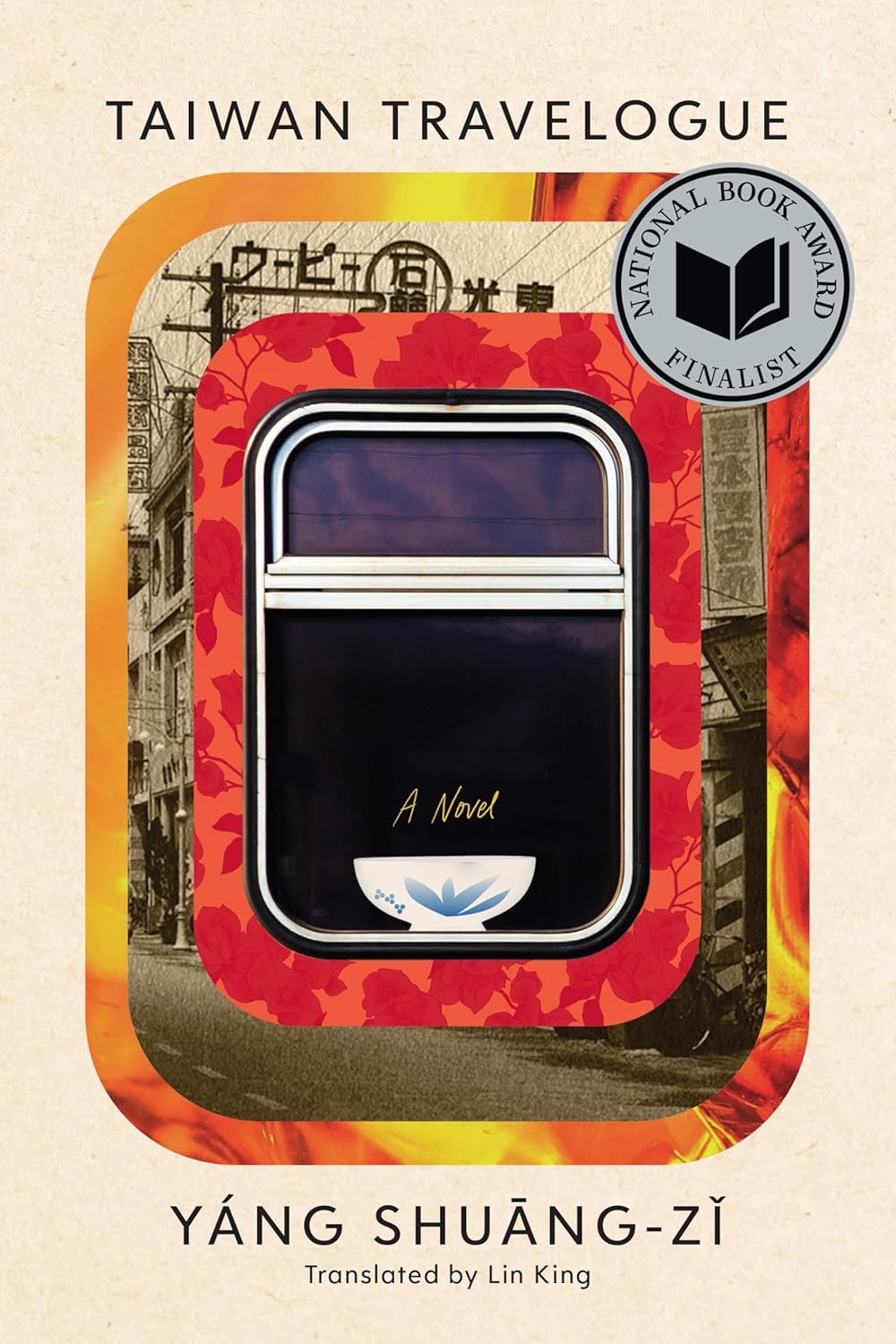Taiwan Travelogue: A Novel
- By Yáng Shuāng-zǐ; translated by Lin King
- Graywolf Press
- 320 pp.
- Reviewed by Marcie Geffner
- November 14, 2024
Two women figure out what they mean to each other in this charming tale with an unusual backstory.

Aoyama Chizuko has “a monster’s appetite.”
“When it comes to good food,” she says, “I will forever have room in my stomach.”
The year is 1938. Chizuko, a successful author whose debut novel, A Record of Youth, has been made into a movie, has traveled from her home on Kyūshū, Japan’s third-largest island, for an all-expenses-paid lecture tour. Her destination: Taiwan, another island, located in the western
Pacific Ocean off the southeastern coast of China.
Ignorant of the Taiwanese language, Chizuko will be accompanied throughout her stay by a dedicated personal interpreter, Ông Tshian-hóh (or, in Japanese, Ō Chizuru).
Chizuru is much more than a language expert. Soon after the two women meet, she brings Chizuko an entire wardrobe of new clothing, a library card, local maps, and a list of area restaurants. In addition to her duties as an interpreter, she also acts as Chizuko’s personal assistant, travel agent, private chef, and procurer of large quantities of regional foods to meet Chizuko’s daily demands. What more could a traveling author desire?
In Chizuko’s case, a lot.
Smitten by Chizuru’s sweet-as-honey smile and adorable dimples, as well as her flawless Japanese and remarkable ability to restore harmony in the awkward social situations Chizuko creates wherever she goes, Chizuko begins to pressure Chizuru into greater intimacies. Will Chizuru share personal details of her childhood, her career, and her marriage plans? Has Chizuko accurately guessed Chizuru’s private dream: to become a translator of novels? Will Chizuru — pretty please — move into Chizuko’s cottage in Taiwan? Will she wear the kimono Chizuko has had made for her? Later, will she return to Japan with Chizuko and live there with her in her wealthy family’s home?
Though Chizuru skillfully hides her true feelings, her discomfort with Chizuko’s demands becomes increasingly apparent as the six-month trip is extended to a year. Is Chizuru genuinely fond of Chizuko, despite the latter’s monstrous appetite and intrusive cluelessness? Are Chizuko and Chizuru “friends” as Chizuko insists, or is Chizuko nothing to Chizuru but an overbearing, obnoxious employer? Can friendship, even love, overcome their differences of language, class, culture, and yet another barrier, the fraught and convoluted history of Taiwan?
The island’s Indigenous peoples were first visited by European sailors in the 1500s. In 1624, the Dutch East India Company established a settlement with rice and sugar plantations on the island. Thirty-eight years later, the Dutch were driven out by (Chinese) Ming dynasty loyalists, who established their own authority over Taiwan in 1662. In 1885, the island was declared a province of the Qing (Manchu) Empire.
Ten years after that, a treaty between the Qing dynasty and Japan placed Taiwan under Japanese colonial rule. The Japanese authorities forced the Taiwanese people to learn the Japanese language and absorb Japanese culture. This, arguably, gave the Taiwanese greater access to science and technology, but at the cost of their culture and language.
The Japanese also added some 300 miles of railroad tracks to Taiwan — tracks on which Chizuko and Chizuru travel for Chizuko’s lectures.
The book’s title, Taiwan Travelogue, may suggest nonfiction, but it was originally part of an audacious and controversial hoax. Researched and written by twin sisters, the novel was first published in 2020 in Mandarin Chinese with “Aoyama Chizuko” as the author and Yáng Shuāng-zǐ (the sisters’ pseudonym) as the “translator.” An elaborate backstory claimed the book was a 1930s travel journal translated from Japanese. In fact, no such journal ever existed. In another twist, the 2020 Chinese-language novel was translated into Japanese in 2023.
The delicious English translation includes two sets of footnotes, one by Yáng as the original (fictional) Japanese-to-Chinese translator, and the other by Lin King, the real-life Chinese-to-English translator. Multiple endnotes by both fictional and real-life editors and translators create deliberate confusion over what’s historical truth and what isn’t.
This may all prove a bit much for some readers, yet the history and complexity support a fascinating narrative in which the colonial and cultural implications of translation play an important part. In the end, Taiwan Travelogue is much more than a feast for foodies or a tale for armchair travelers. It’s a journey into the hearts of two unforgettable women who may or may not be able to reconcile friendship, perhaps even love, with the enormous gap in their social status and the vast cultural differences of their lives.
Marcie Geffner is a writer, editor, and book reviewer in Ventura, California.
